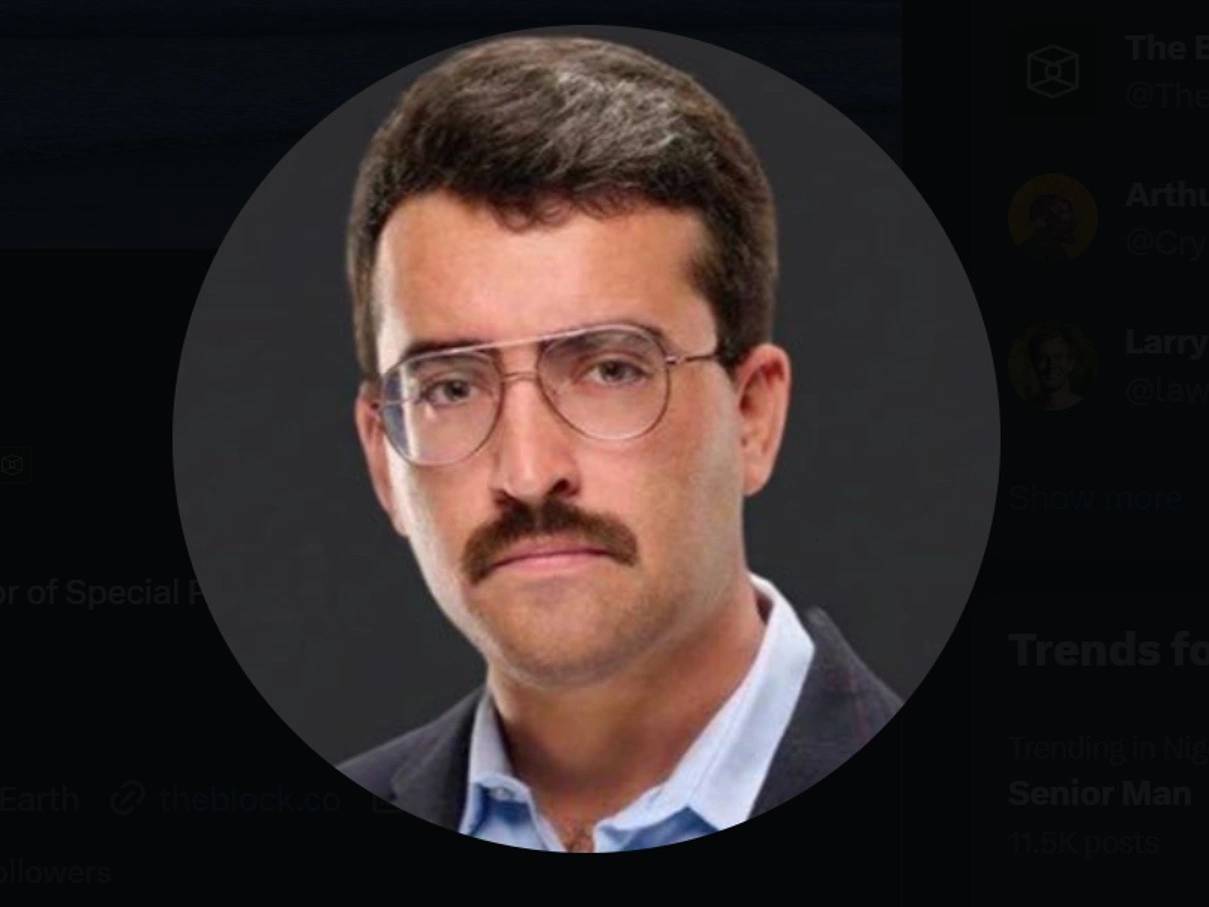위키 구독하기
Share wiki
Bookmark
Frank Chaparro (Fintech Frank)
0%
Frank Chaparro (Fintech Frank)
Frank Chaparro(일명 Fintech Frank)는 금융 시장 및 암호화폐 산업에 중점을 둔 언론인이자 미디어 전문가입니다. 그는 The Block에서 에디터 겸 특별 프로젝트 디렉터로 활동하며 업계 동향을 다루고 시장 참여자들과 인터뷰를 진행합니다. [1][2]
학력
Frank Chaparro는 Fordham University에서 국제 정치 경제 및 신학 학사 학위를 받았습니다. [1]
경력
Chaparro는 2014년 12월부터 2016년 5월까지 WFUV 공영 라디오에서 저녁 뉴스 앵커로 경력을 시작했습니다. 2016년 여름에는 Nasdaq에서 마케팅 및 기업 커뮤니케이션 업무를 담당했습니다. 2017년 초에는 Business Insider에서 금융 및 시장 편집 인턴으로 근무하며 은행, 증권 거래소, 투자 동향과 같은 주제를 다루었습니다. 2017년 6월부터 2018년 9월까지 Business Insider에서 금융 기자로 활동하며 암호화폐, 주식 시장 구조, 디지털 자산 관리 등을 취재했습니다.
Chaparro는 2018년 9월 The Block에 암호화폐 시장, 거래소, 기관 참여를 보도하는 선임 기자로 합류했습니다. 2019년 5월에는 뉴스 디렉터가 되었고, 이후 2024년 1월까지 에디터 겸 특별 프로젝트 디렉터 역할을 수행했습니다. 2025년 1월에는 인터뷰 시리즈 The Scoop의 진행자로 The Block에 파트타임으로 복귀하여 2025년 7월까지 이 직책을 맡았습니다. 같은 달에 GSR에 콘텐츠 및 특별 프로젝트 책임자로 합류했습니다. [6]
인터뷰
스테이블코인 및 토큰화
2025년 2월 Tearsheet 팟캐스트 에피소드에서 Chaparro는 금융 산업에서 스테이블코인과 토큰화의 진화하는 환경에 대해 논의했습니다. 그는 특히 FTX 붕괴와 같은 중요한 시장 혼란 이후 혁신적인 기술을 채택하는 데 있어 전통적인 금융 기관이 직면한 어려움을 강조했습니다. FTX 붕괴는 신용 경색과 그에 따른 유동성 문제를 야기했습니다. Chaparro는 스테이블코인이 상당한 시가총액으로 입증되듯이 견인력을 얻었지만, 규제 불확실성과 내부 정책 제약으로 인해 은행 내에서의 채택은 여전히 신중하다고 언급했습니다. 그는 스테이블코인이 탈중앙화 금융과의 더 깊은 참여를 촉진할 수 있는 중추적인 제품으로서의 중요성을 강조했습니다. 금융 부문이 이러한 기술에 점차 익숙해짐에 따라 더 광범위한 채택 및 통합 가능성이 증가하여 전통적인 금융에서 디지털 자산의 미래에 대한 신중한 낙관론을 제시합니다. [7]
암호화폐 및 월스트리트
2025년 1월 Chaparro는 "The Aubservation"에 출연하여 진행자와의 우정에 대해 이야기하고 암호화폐 산업의 현재 상태에 대한 통찰력을 공유했습니다. 그들은 특히 트위터에서의 과거 상호 작용을 회상하고 암호화폐 규제 및 새로운 행정부 하의 정부 입장에 대한 최근 개발 사항에 대해 논의했습니다. Chaparro는 정치 정당 간의 암호화폐에 대한 대조적인 태도와 주류 언론의 종종 단순한 산업 이해를 강조했습니다. 그는 특히 스테이블코인과 탈중앙화 금융에서 암호화폐의 미래 잠재력에 대해 낙관론과 회의론을 동시에 표명하면서 시장에 대한 더 광범위한 거시 경제적 영향도 다루었습니다. 그들은 Chaparro의 이탈리아 유산과 암호화폐-가톨릭 커뮤니티 참여를 탐구하면서 더 가벼운 분위기로 마무리했습니다. [8]
암호화폐 미디어 환경
2024년 7월 Decential Media 팟캐스트에서 Matt Lysing은 Chaparro와 함께 암호화폐 부문의 중요한 사건, 특히 FTX 스캔들 동안 Chaparro가 겪은 경험에 대해 대화를 나눴습니다. 그는 업계 임원들이 직면한 몰락과 감정적 혼란을 직접 목격했습니다. 그들은 국제 정치 및 신학 분야에서 Chaparro의 학문적 배경을 탐구하고 다양한 신앙 관점이 돈에 대한 견해를 어떻게 형성할 수 있는지 탐구했습니다. 이 대화는 또한 암호화폐 저널리즘의 진화하는 환경, 소규모 기업에 대한 보도의 어려움, 시장에서 기관 플레이어의 중요한 영향력을 반영했습니다. 궁극적으로 Chaparro는 빠르게 변화하고 종종 혼란스러운 암호화폐 환경에서 책임감 있는 보도의 필요성을 강조했습니다. [9]
FTX 몰락
2022년 12월 Anthony Pompliano는 Chaparro와 함께 FTX 붕괴의 여파에 대해 인터뷰했습니다. Chaparro는 관련된 다양한 회사의 상호 연결성을 강조하면서 특히 Sam Bankman-Fried가 Alameda 및 BlockFi와 관련된 복잡한 거래 시리즈를 통해 돈을 빌려 궁극적으로 Robinhood의 지분을 조달한 방법을 지적했습니다. 그들은 FTX 운영의 놀라운 측면, 즉 재정 통제의 부족과 그들의 이타주의와 모순되는 경영진의 사치스러운 생활 방식에 대해 반성했습니다. Chaparro는 FTX 붕괴가 심각한 경영 부실과 잠재적으로 사기적인 행동을 드러냈으며, 과거 암호화폐 산업에 대한 낙관적인 이야기에 반대된다고 언급했습니다. 이 대화는 규제 문제와 암호화폐 시장에서 미래의 자체 규제 가능성을 다루었습니다. 미래에 유사한 문제를 방지하기 위해 더 명확한 위험 관리 및 담보 기준의 필요성을 강조했습니다. [10]
패널
Ripple 및 XRPL
2024년 7월 XRP Ledger Apex에서 Chaparro는 Brad Garlinghouse 및 David Schwartz와 함께 Ripple에 대해 논의했습니다. 그들은 Ripple에서의 오랜 협력과 XRP Ledger(XRPL)의 진화에 대해 반성했습니다. 그들은 프로젝트 범위와 우선 순위에 대해 때때로 의견이 일치하지 않았지만 혁신적인 문화는 소비자 아웃리치보다 결제 솔루션 해결에 중점을 두었다는 점을 인정했습니다. SEC의 규제 문제에 직면했음에도 불구하고 Garlinghouse는 XRP를 둘러싼 활기찬 커뮤니티를 언급하고 대량 채택을 위한 사용자 친화적인 제품의 중요성을 강조했습니다. 그들은 XRPL 생태계 내에서 유동성을 향상시키는 데 있어 스테이블코인의 중요성에 대해 논의하고 다가오는 스테이블코인 출시 및 새로운 금융 프로토콜 계획과 같은 예상되는 발전을 설명했습니다. 둘 다 블록체인 기술의 광범위한 채택을 촉진하는 데 있어 단순성과 유용성의 중요성을 강조하면서 미국에서 암호화폐와 정치적 담론 간의 진화하는 관계에 대해 낙관론을 표명했습니다. [11]
잘못된 내용이 있나요?
